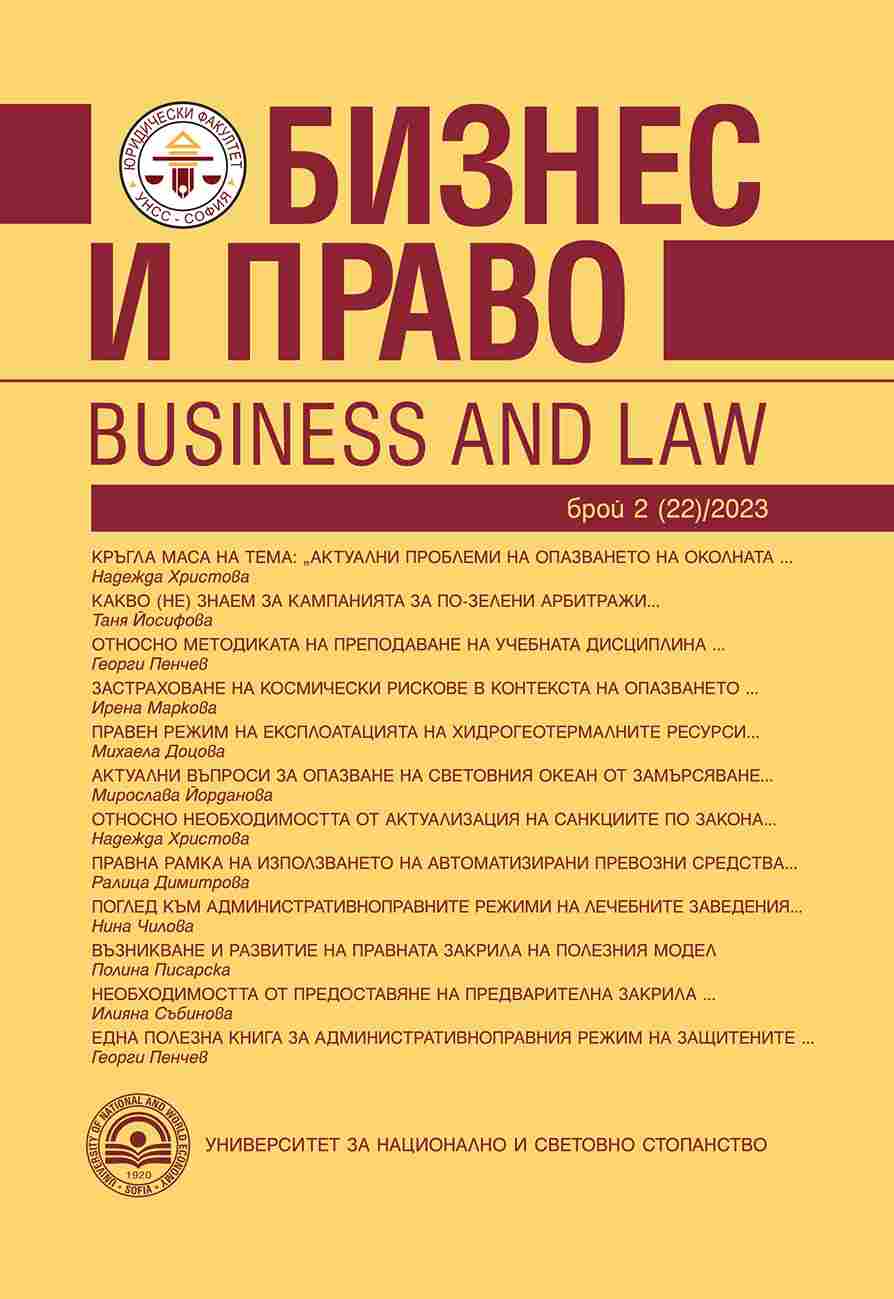Относно необходимостта от актуализация на санкциите по Закона за опазване на околната среда
On the Need to Update the Sanctions under the Environmental Protection Act
Author(s): Nadezhda HristovaSubject(s): Politics / Political Sciences, Politics, Economy, Business Economy / Management, Energy and Environmental Studies, Political Theory, Environmental and Energy policy, Politics and law
Published by: Университет за национално и световно стопанство (УНСС)
Keywords: environment; sanctions; administrative penal liability; administrative environmental offences
Summary/Abstract: Despite the invaluable role of the world ocean in many aspects of human existence, namely environmental, economic, cultural, social, and scientific, the pollution of the high seas remains an on-going concern. The soft law instruments and practices such as education and prevention of pollution from dumping of plastic waste are ineffective to tackle the problems of the world ocean in a comprehensive manner. For that reason, the international legal instruments in environmental law and the law of the sea, are a crucial tool for offering and effective solution to the problem of polluting the world ocean. In that regard, the international conventions in force are the most important instruments which can produce the necessary legal effects. The transnational nature of the pollution of the world ocean calls for the necessity to develop a respective international framework of protection. The new Global Treaty on the Conservation and Sustainable Use of High Seas Biodiversity adopted in 2023 (‘The High Seas Treaty’) has developed such, but the question with efficiency is still pending since it is not yet in force. Together with the Law of the Sea Convention, those are the two crucial international legal instruments that will offer protection of the important marine areas beyond national jurisdiction. While the Law of the Sea Convention tackles main issues of the sustainable use of non-living resources in the high seas, the High Seas Treaty further develops the protection over living resources of the areas beyond national jurisdiction and protects the marine ecosystems from diminishing biodiversity as a result from pollution. However, the main problem with the new treaty is its ratification by at least 60 countries so that it can come into force and provide the so urgently needed protection of the world ocean from pollution.The present study analyses the sanctions provided for violating the Environmental Protection Act’s provisions. It especially examines and criticizes its part about administrative penal liability. It proposes de lege ferenda to improve the Act, adding sanctions against violators to avoid corrupt practices and improve public management in environmental protection.
Journal: Бизнес и право
- Issue Year: 22/2023
- Issue No: 2
- Page Range: 91-103
- Page Count: 13
- Language: Bulgarian

